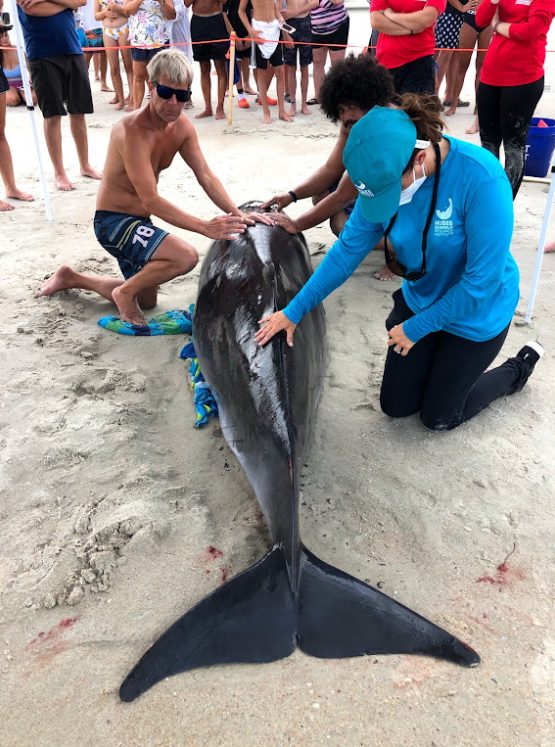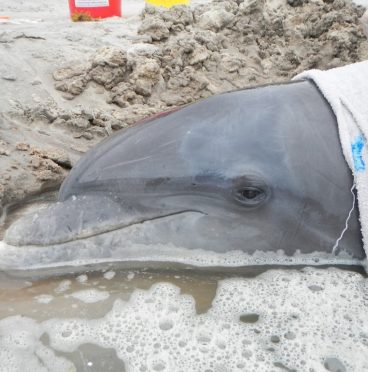Marine Mammal Stranding and Response
Covering 40% of Florida's east coast
When a stranding occurs in Brevard, Volusia, or Flagler counties, Hubbs-SeaWorld Research scientists are the first responders to provide assistance to live animals, and to examine and collect samples from dead animals. HSWRI conducts vital research on samples taken from these animals in order to investigate
life-threatening diseases that affect both marine life and humans.
This research informs Indian River Lagoon habitat management of potential actions to save bottlenose dolphins and other marine life.


Located on Melbourne Beach, HSWRI provides 24/7 stranding response for animals in distress along the Indian River Lagoon. We investigate why strandings occur and monitor behavior and success of rehabilitated animals that have been returned to the water. We also work with coastal communities to prevent injuries to free-ranging marine mammals and work diligently to understand the abundance and distribution of estuarine dolphins, providing estimates of dolphin abundance needed by resource managers. Understanding and preventing diminished marine animal health and widespread mortality events among marine mammals, seabirds, fish and sharks are some of our top priorities.